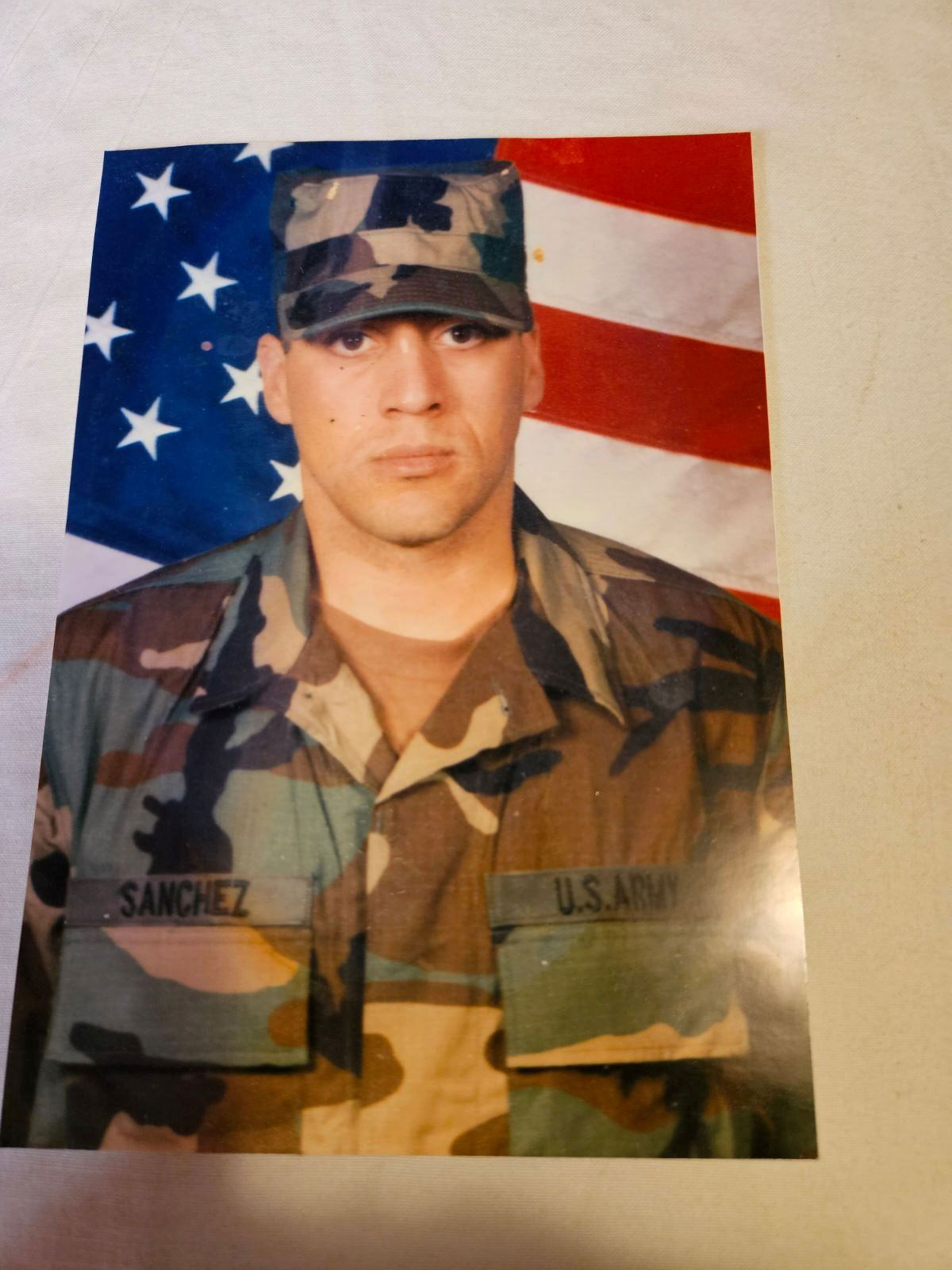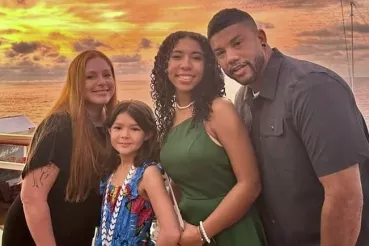When Juan Sanchez compares his life today to what it looked like nine years ago, he sees nothing but progress. Juan, a U.S. Army veteran from Northwest Indiana now living on Chicago’s South Side, was among the first infantry units deployed to Iraq in 2003 and 2004. When he came home from his service in 2005, traumatic memories followed him, and he had difficulty transitioning to civilian life.
“Between 2005 and 2011, I had like 11 jobs,” Juan said. “You name it; I did it. I couldn’t keep a job and was constantly fighting. I was going through relationships like crazy and self-medicating.”

Juan struggled with the symptoms of post-traumatic stress disorder, or PTSD, which continued to mount until 2011. At that time, Juan survived a suicide attempt, and another veteran connected Juan to services at the U.S. Department of Veterans Affairs. Though these services were the starting point for Juan’s recovery, Juan ultimately sought more in-depth support, which he found at the Road Home Program.
“I think it’s important for veterans to see how far someone like me, who’s actually been on that bridge, has come,” Juan said. “I’m a combat veteran, so my trauma is kind of horrific. I cannot tell you how many times these people at the Road Home Program have saved my life.”
Juan was part of the Road Home Program’s inaugural Intensive Outpatient Program, or IOP, and among the first to pilot and benefit from this treatment model, which provided him with skills to apply to his everyday life and continued support from the program’s clinicians, led by Brian Klassen, PhD, clinical director. His feedback helped shape and grow the program.
“The great thing about the Road Home Program is they’re available, and for a veteran like myself, that’s really important,” he said. “When I came back from Iraq, I felt insufficient as far as being a father, son, brother or family member. I felt insufficient for the things I did in Iraq and to this day carry with me. The only difference now is I don’t let it consume me.”
Through prolonged exposure therapy, clinicians gave Juan step-by-step instructions on how to face some of his fears, such as traveling downtown for 30 minutes at a time and writing down his stress level every few minutes. There were times, starting out, when Juan felt defeated by his attempts at therapy and wanted to quit, but clinicians at the Road Home Program provided encouragement and support.
“There were times I felt embarrassed and really insufficient, and all they did over here was praise me,” he said.
Beyond learning how to manage triggers, Juan engaged in cognitive processing therapy and cultivated the ability to handle challenging emotions and better communicate with his loved ones. He continues to attend yoga and receive support from the Road Home Program.
Juan said his four children and other family members did not want to talk to him when he returned home from his military service because of the behavioral challenges he faced. There were times when he felt so hopeless, he felt like giving up on life. In those difficult moments, staff from the Road Home Program called him to invite him to a sporting event or a gathering, he said.
“The way they operate is so unique from all these other programs because a lot of other programs will tell you what to do but won’t give you the tools to use in the outside world,” Juan said. “They’re so efficient at taking care of that aspect here by getting us up and out. Sometimes you can come over and visit to just have some coffee. You walk in, and there’s a therapeutic atmosphere. They want to do their best to get you in a better place, and I’m living, breathing, walking proof of what they do.”
Though Juan still faces challenges today, he has a much easier time making friends, has a partner and a newborn baby and hopes to buy a house soon. He credits the Road Home Program with helping him make this progress and recommends the program to other veterans he meets.
“These people will help you have a life,” Juan said. “I’m not going to say I’m free of PTSD and all the stuff that comes with it, but they’ve helped me live. They’ve given me a family.”
When Juan was part of the first IOP nine years ago, he told the clinicians that he wanted to get to a place where he could break the cycle, and he has been able to do just that, he said. “I’ve learned that I’m good enough,” he said.
“I’m good enough to have a family, have kids, be a son. I get along with my family now. I feel good about myself now, even in bad times.
“It’s like the piano. We’ve got the white keys and the black keys. What they’ve allowed me to do here is to play both — to allow happiness and also allow sadness and then enjoy the melody of my life.”
The ABCD Method
The Road Home Program taught Juan the ABCD Method — a therapeutic exercise that he uses in his daily life. This exercise helps people reframe negative patterns of thinking by considering the following:
A: The activating event, or what happened to create stress
B: Their beliefs, or what interpretations they are making about the event
C: The consequence, or what they are feeling or how they are behaving as a result of their beliefs
D: A dispute, or alternative ways of thinking they could use instead
To learn more about supporting the Road Home Program’s work to provide mental health care at no cost to veterans, active-duty service members and families, please contact Michelle Boardman, senior director of development, at michelle_a_boardman@rush.edu or (312) 942-6884. You may also make a gift online to fuel services and innovation at the Road Home Program.




